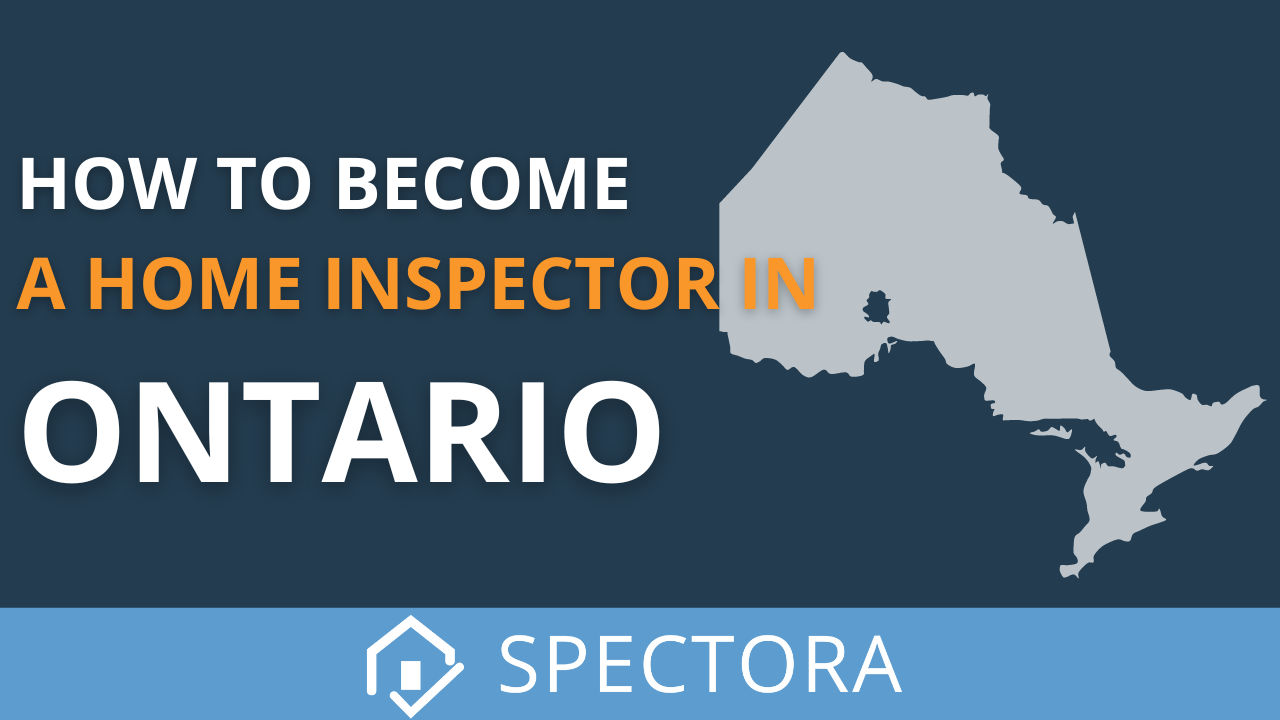How to Become a Home Inspector in Ontario


If you want to become a home inspector in Ontario, we have good news: the process is relatively easy.
Home inspectors are not required to obtain a license to practice in Ontario. The prerequisite requirements are also minimal: as long as you are over 18 years of age and have finished secondary school, you are technically qualified to become a home inspector.
However, there are some additional steps we recommend to become a home inspector, including completing education and training and gaining field experience. The guide below will walk you through the steps to becoming a home inspector in Ontario.
Although Ontario doesn't have specific educational requirements for home inspectors, it's highly recommended that all home inspectors complete some education or training to prepare for the job.
There are many schooling/training options for Ontario home inspectors to choose from, but each option will give you the knowledge you need to start as a home inspector.
By completing a training course, you'll show realtors and homebuyers alike that you have credibility and are prepared for the job.
Although Ontario does not technically require it, the Ontario Association of Home Inspectors (OAHI) requires that their home inspectors complete a practical training requirement. Whether or not you choose to join OAHI, practical field experience is never a bad idea.
Why? By shadowing an experienced inspector or completing inspections under supervision, you'll be able to work out the kinks before you start on your own. And, as an added bonus, you'll form a community of inspectors in the process.
Be prepared for the worst (even if it's not required).
Getting insurance coverage is important, and without it, your business could be devastated in the worst-case scenario. Because Ontario doesn't have strict insurance requirements for home inspectors, you can pick and choose your coverage.
Most home inspectors opt for general liability coverage, errors and omissions coverage, or a combination of the two. Be sure to understand the differences between the two types of insurance before making a decision.
Once you've completed training and purchased insurance, you're ready to start inspecting. Of course, you'll need to buy your tools and your software and decide where you want to start your career before you actually get out in the field.
One of the first decisions you'll have to make as a home inspector is whether to start your own business or join an existing inspector company.
There are pros and cons to both options: if you start your own business, you'll have complete freedom and control over your schedule and how things are run. But you'll have to take complete responsibility for other aspects of the business, such as marketing.
If you join an existing company, you'll have less freedom, but you won't have to worry as much about aspects of the business outside of the inspection itself.
The days of writing your home inspection report on a Word doc are over: realtors and clients alike prefer a clean, web-based report.
There are many great software options out there; the most important thing is finding the software that works best for you. Good software will save you time on report writing, have up-to-date technology, and of course, customer support and resources to help you when any problems arise.
Once you're ready to start inspecting, you'll need to start marketing your home inspection business. Whether it's Instagram, SEO, or good old-fashioned marketing at open houses, you'll need to connect with agents to start booking inspections.
Stuck on where to start? Here are some of our best marketing ideas for 2023.